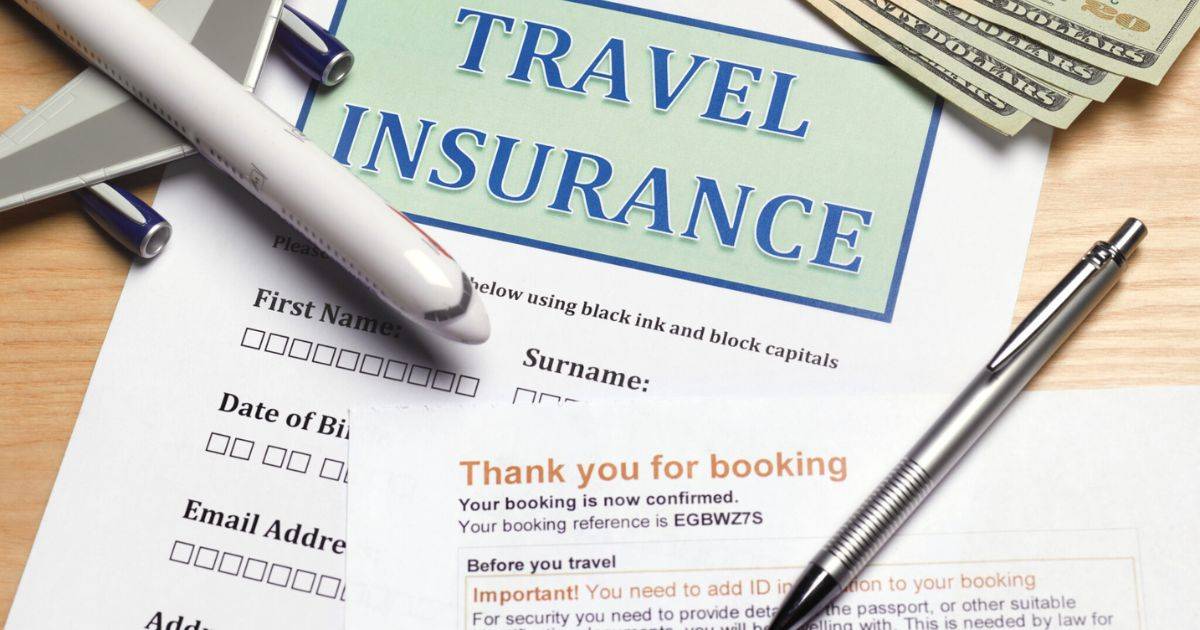Studying abroad is an exciting opportunity for students, but it comes with its own set of challenges, especially when it comes to safeguarding your journey. One of the most critical preparations is buying travel insurance. Unfortunately, many students make mistakes when purchasing travel insurance, leaving them vulnerable to unexpected expenses, medical emergencies, or trip disruptions.
Travel insurance is more than just a formality; it’s your safety net in case things don’t go as planned. Whether it’s a medical emergency, lost baggage, or a canceled trip, travel insurance can help minimize the financial burden. However, to get the most out of your policy, it’s important to avoid common mistakes. In this guide, we’ll go over the most frequent errors students make when buying travel insurance and how you can avoid them.
1. Not Reading the Policy Details

One of the most common mistakes students make is not reading the fine print of their travel insurance policy. Many people purchase insurance without fully understanding what’s covered and what’s not. This oversight can lead to unpleasant surprises later when you realize that certain situations, such as trip cancellations or lost baggage, aren’t covered.
To avoid this mistake, take the time to go through the policy details carefully. Make sure you understand the coverage limits, exclusions, and terms of the policy. If something is unclear, don’t hesitate to ask your provider for clarification. Knowing exactly what you’re paying for ensures that you won’t be caught off guard in case of an emergency.
2. Skipping Medical Coverage
Many students mistakenly assume that their domestic health insurance will cover them while studying abroad. Unfortunately, that’s not always the case, and skipping medical coverage in a travel insurance policy can leave you vulnerable to high healthcare costs. Medical emergencies can happen at any time, and without coverage, you could face significant out-of-pocket expenses.
Always make sure that your travel insurance includes comprehensive medical coverage, especially if you’re traveling to a country where healthcare costs are high. This should include coverage for doctor visits, hospital stays, and even emergency medical evacuation if necessary. Skipping this step can result in financial strain if a medical emergency arises during your trip.
3. Ignoring Trip Cancellations
Another common mistake is overlooking the importance of trip cancellation coverage. Many students think that once they’ve booked their flights and accommodations, nothing will go wrong. However, unforeseen events like family emergencies, natural disasters, or political unrest can force you to cancel your trip. Without trip cancellation coverage, you could lose money on non-refundable bookings.
Trip cancellation coverage ensures that you’re reimbursed for prepaid expenses if you need to cancel your trip for a covered reason. It’s essential to check what reasons are included under this coverage and understand the conditions for making a claim. This coverage provides peace of mind knowing that you won’t lose money if your plans change unexpectedly.
4. Choosing the Cheapest Option
In an effort to save money, many students make the mistake of choosing the cheapest travel insurance policy they can find. While budget-conscious decisions are understandable, opting for the least expensive plan often means sacrificing important coverage. A basic, low-cost plan may not offer the protection you need, leaving you exposed to financial risks.
Instead of focusing solely on price, compare the features of different policies. Look for a policy that offers a good balance of affordability and comprehensive coverage. Remember, cheap travel insurance might save you money upfront, but it could cost you much more in the long run if it doesn’t cover key aspects like medical emergencies or trip cancellations.
5. Forgetting to Check Exclusions
Every travel insurance policy comes with exclusions—situations or events that are not covered by the policy. A common mistake students make is not checking these exclusions before purchasing insurance. For instance, some policies might exclude coverage for adventure sports, pre-existing conditions, or specific destinations.
To avoid unpleasant surprises, make sure to read the list of exclusions carefully. If your study abroad plans include activities like skiing, hiking, or other adventure sports, you’ll want to ensure that they’re covered. If not, consider adding a rider to your policy or choosing a plan that offers broader coverage. Knowing what’s excluded will help you make an informed decision and avoid future headaches.
6. Overlooking Pre-Existing Conditions
If you have a pre-existing medical condition, it’s essential to disclose it when purchasing travel insurance. One of the biggest mistakes students make is assuming that their insurance will automatically cover any medical issues that arise during their trip, even if they are related to pre-existing conditions. Many policies exclude pre-existing conditions unless they’re explicitly stated.
To avoid this mistake, look for a policy that either includes pre-existing conditions or offers a waiver. Some insurance providers may require you to purchase coverage for pre-existing conditions within a certain time frame after booking your trip. Being upfront about your health history ensures that you won’t run into problems if you need medical treatment related to your condition.
7. Buying Insurance Too Late
Timing is crucial when purchasing travel insurance. A common mistake is waiting until the last minute to buy a policy, thinking you can do it just before departure. However, certain types of coverage, such as trip cancellation or pre-existing condition waivers, must be purchased within a specific time frame after booking your trip. Buying insurance too late could result in limited coverage or higher costs.
To ensure you’re fully protected, purchase your travel insurance as soon as you book your flights and accommodations. This way, you’ll have coverage in case of trip cancellations or other unforeseen events that could happen before your departure. Early purchase also gives you more options and better coverage for pre-existing conditions.
8. Not Considering Duration of Coverage
Another mistake students make is not accounting for the length of their study abroad program when purchasing travel insurance. Some students buy short-term policies that don’t cover their entire stay, assuming they can extend the policy later. However, this could leave gaps in coverage, especially if you forget to renew or extend the policy in time.
When buying travel insurance, make sure that the duration of the policy matches the length of your stay abroad. If your program lasts several months or longer, consider a long-term travel insurance policy that covers the entire duration. Having continuous coverage ensures that you’re protected throughout your trip without worrying about lapses in insurance.
9. Assuming All Activities Are Covered
Many students assume that all the activities they plan to participate in during their study abroad program are covered by their travel insurance. This is a big mistake, especially if you’re planning to engage in adventure sports or high-risk activities. Not all travel insurance policies cover activities like skiing, scuba diving, or bungee jumping.
Before purchasing a policy, check whether it covers the activities you plan to participate in. If not, you may need to add additional coverage or choose a specialized policy that includes adventure sports. Failing to check this can result in uncovered expenses if you’re injured while participating in these activities.
10. Not Comparing Different Policies
The final mistake many students make is not taking the time to compare different travel insurance policies. With so many options available, it’s easy to grab the first policy you come across. However, not all travel insurance policies are created equal, and failing to compare can lead to insufficient coverage or paying more than necessary.
Take the time to compare multiple policies, looking at factors like coverage limits, exclusions, and costs. Use online comparison tools or speak with an insurance agent to find a policy that fits your needs and budget. Doing your research ensures that you get the best possible coverage for your study abroad experience.
· FAQs
1. What does travel insurance typically cover for students?
Travel insurance generally covers medical emergencies, trip cancellations, lost luggage, and emergency evacuations.
2. Do I need to disclose pre-existing medical conditions?
Yes, it’s important to disclose any pre-existing conditions to ensure they are covered under your policy.
3. When should I buy travel insurance?
It’s best to buy travel insurance as soon as you book your trip to ensure full coverage for cancellations and other events.
4. Can I buy cheap travel insurance?
While affordable options exist, make sure the policy offers sufficient coverage for medical emergencies, trip cancellations, and other essential areas.
5. Does travel insurance cover adventure sports?
Not all policies do, so if you plan on participating in adventure sports, ensure your policy includes coverage for these activities.
· Conclusion
Buying travel insurance is a vital step in preparing for your study abroad experience, but it’s easy to make mistakes along the way. From not reading the policy details to overlooking important coverage like medical expenses or trip cancellations, these errors can lead to unnecessary stress and financial losses. By being aware of these common mistakes, you can make informed decisions and choose the right travel insurance policy for your needs.
Ultimately, the right travel insurance provides peace of mind and financial protection, allowing you to focus on your studies and enjoy your time abroad. Avoiding these common pitfalls will help ensure that your study abroad experience goes as smoothly as possible, no matter what challenges may arise.

